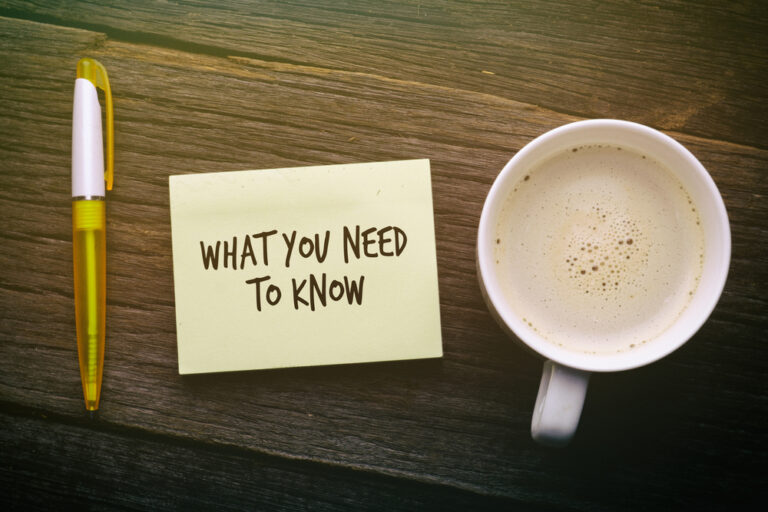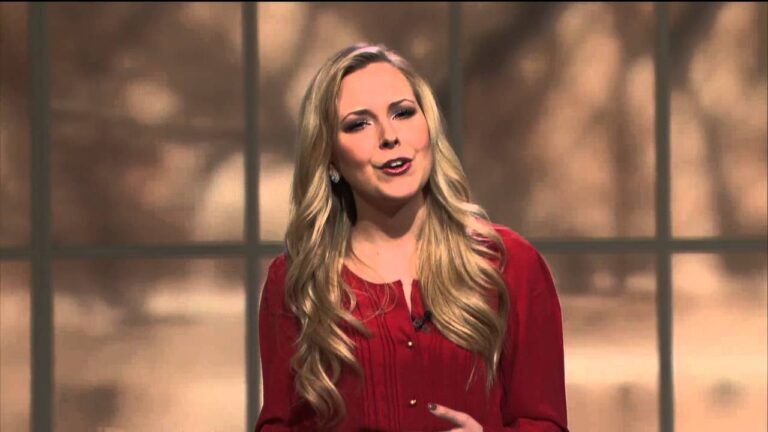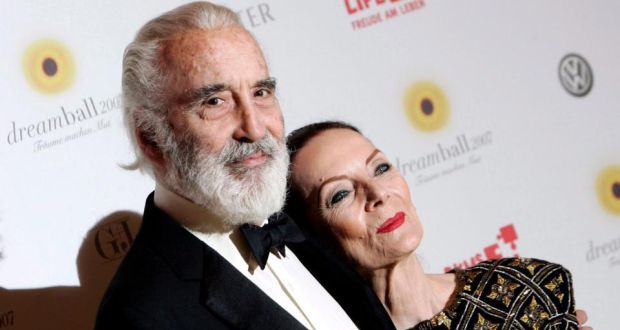How WhatsApp Earns Money? | Secret WhatsApp Business Model After Sell to Facebook
WhatsApp Business Model – How to use Facebook use WhatsApp Data and Why Reject People’s Privacy Policy
Nowadays, the WhatsApp application has gained 2 million active users hit on daily routine. From “good morning” messages from the family to fake messages from the university, WhatsApp has become a top-rated app worldwide for sending and receiving instant messages. That means around 25% of people from all over the world use this App at the same time.
Now race up 1 question for everyone what is the business model of this application? Don’t worry we discuss all over the WhatsApp business model and how to operate this company for users. Let’s start with the lunching progress. 2 people started Whataap with the help of Jan Koum and Brian Acton in 2009. Before starting this project they work at Yahoo company together. But for some personal issue, they left the Yahoo company and applied for Facebook and Twitter companies but they were not selected.

After being rejected by Facebook and Twitter company Brian Acton Twite Twitter on himself rejection from Twitter. Also, post about the Facebook rejection on Twitter. “Facebook turned me down. It was a great opportunity to connect with some fantastic people. Looking forward to life’s next adventures”
How to Bring a WhatApp Creation Idea?
The Most interesting thing to know is how to bring an idea for Whatapp creation. Jan Koum used a heavy gym daily and realized that he wouldn’t be able to receive that call from his friends. He kept on missing calls. That made him think that there should be an app, that would show a status that he was in the gym at the time.
On this basic idea, he creates a WhatsApp app. In starter time WhatsApp mustn’t have any feature of messages. That means you couldn’t send any messages like you can do so now on WhatsApp. This app is just a “WhatsApp” like you ask people “what’s Up”. Therefore, you can share with this app what’s up status. That means, you could simply post your status in this app and this app notify the rest of your friends.
After some time, the creators felt that if some people use this application for massages then it would be better to make the app a massaging service. Don’t rely that this idea is mind-blowing successful in some time. One big reason the massaging app was successful was that there was no other app on which one could massage others for free in 2009. That app’s name is Blackberry Messenger App. The big issue with his app is that you had a Blackberry Mobile. Whatapp filled this grab.
WhatsApp Became Most Papuler in a Few Time
WhatsApp gained 2,00,000 downloads a few times in the starter period. Whatapp started receiving funding from investors. WhatsApp’s popularity skyrockets on its own without any type of marketing and running ads. Because people liked it so much they told their friends about it and those friends told other friends and WhatsApp saw organic growth. Can you imagine, that Whatapps saw its growth due to European, Asian, and African countries?
Remember that, in 2009 these telephone companies charged a lot of money for each sending SMS. Calling rates were based on a minute per call. They were quite expensive. And here clear-cut free option so people start using WhatsApp. within 2 years, this app became one of the top 10 apps in the Google Play Store. This was almost every country’s favor except America because America gives flat prices for SMS delivery packages. Even today, the United States of America is one of the worst-performing markets in WhatsApp.
WhatsApp Started Expense
Taking about the WhatsApp business model, Initially, there weren’t many expenses to run WhatsApp. They had a small team to run the WhatsApp application. They had a build a simple app. They weren’t spending money on marketing or running ads. So, the big expense of running WhatApps is the cost of sending SMSs. The verification text that WhatsApp sends when the user joins it. So, the one SMS per user they have to send for verification. That was the biggest expense for WhatsApp.
Then WhatsApp charges $0.99 for one year from the user. You heard it right, WhatsApp wasn’t a free app anymore. They started charging $1 but despite that, the user experience of their app was very good and the app worked so smoothly. Other new features were being added like you could send photos over WhatsApp. So, that means their growth continued. In 2011, WhatsApp
became a top app in the Google Play Store.
Acton was clear about one thing and he had stuck a note on the table “No Ads! No Games! No Gimmicks!”. He didn’t want to run ads on WhatsApp and add features that had no greater purpose. Indeed, he wanted to keep the app simple and to the point. That means he wanted the app to be so good at that one thing that no other app could compete with it. People could have no other choice app and to keep on using it.
Their $1 business model was very successful within 3 years Whatsapp became a profitable company. All the money they earned was spent on building their small team. So that new features could be added to WhatsApp. The problem in the software could be rectified and a reliable messaging app could be created.
Remove the $1 Fee of WhatsApp
In January 2016, we got to know that WhatsApp had removed its $1 fee and WhatsApp became a completely free application again. The reason behind it is said to be that there are many countries like India where people don’t have credit cards. So, they weren’t able to pay the $1 fee, and many people were unable to afford it. In this case, making this a free app helps in developing a larger user base. So, they decided that since they wanted to expand and have more users for their app.
The question then arose, what should be the business model? How should they earn money? During this time, it was said that WhatsApp would try to get into partnerships with businesses and would try to find a source of revenue from there. At the same time, Mark Zuckerberg was being pressured by his investors because $19 billion had been paid to WhatsApp and so they needed to make some money out of it somehow they had a justify the purchase and show that it was profitable.
WhatsApp’s Biggest Competitors in Start Period
They claimed that their product was their passion and that the user’s data wasn’t something that interested them. That they have no interest in taking users’ data. But after this, Facebook made an entry in our story and this model started crumbling apart from here. Mark Zuckerberg has been trying to buy WhatsApp since 2012. That is shocking news for everyone, after 2 years Facebook bought the WhatsApp brand for 19 Million dollars on 14-Feb-2014.

Whatapp founder has a meeting with Google CEO Sunder Pichai as well but this deal doesn’t finalise. Facebook was very interested in buying WhatsApp because WhatsApp was the biggest competitor of Facebook Messenger. By 2014, several other messaging applications have popped up in competitors like WeChat, Kik, LINE, and Viber.
Facebook Buy the WhatsApp Company
Facebook wanted to buy WhatsApp so that there would be no competitor after they owned both Facebook Messenger and WhatsApp. Apart from this, WhatsApp had access to the user data of so many people and Facebook realized that they could use this data to earn more money. Because Facebook runs its company by selling data.
After this deal, Acton and Kooum, the founder of WhatsApp became billionaires overnight. If you‘re wondering about their reason for selling WhatsApp, Facebook, and Mark Zuckerberg have told them that they would allow them to run WhatsApp independently ever after that acquisition. That there would be no interference in their work. Thus they agreed to sell it.
It sounds like a good deal. They get the money and don’t even have to compromise on their value. But there is no happy ending in this story because there were constant conflicts between Facebook and WhatsApp over the next year. The team of WhatsApp and founder and the way Facebook was pressurizing them.
WhatsApp Founders Resigned his Job
In turn, Mark pressurized the founder of WhatsApp. Fed with this, the founders of WhatsApp gave up finally in March 2017. They couldn’t take it anymore. Brain Acton resigned from his job in September 2017. A few months later, Jan Koum left WhatsApp to say that Facebbok’s opinion on data privacy, and the business model that Facebook wanted to force on WhatsApp weren’t to be agreed to.
You can say that after 2018, Mark Zuckerberg established his control over WhatsApp. Brian Acton went on to establish a non-profit Signal Foundation. With this, we got the new messaging application Signal. As you know, many people compare Singal with WhatsApp and believe that is a superior app in many aspects. It protects your data privacy, it’s a free application like WhatsApp and most importantly, it is a non-profitable application.
This time around, Brain decided that he didn’t want to get entangled in business models, because whenever they run after profits. They have to compromise on the principles of the company in some way or the others. That’s why Signal would remain a non-profit app. They wouldn’t worry about making money and they would ensure the data privacy of the users and would provide the user with a truly free messaging app.
What Happened to WhatsApp then?
In 2018, Facebook launched the WhatsApp Business App. On this app, businesses can create their business profiles and the verified business can link their website and Facebook Pages with this business profile. Facebook established a link between Facebook pages and WhatsApp. People can use the business profiles to go on Facebook through the link
They created an excellent option for promoting Facebook. The new users to visit the business profiles can now go to the Facebook Page with a click only. Although the WhatsApp business application is completely free to use the business API (Application Programming Interface) is the source of revenue of WhatsApp.
API Business Model Basically, a medium through which multiple applications can communicate with each other. For Example, When you book a taxi on Uber, you will notice that the map on Uber has the watermark of Google. So basically, Google Maps is providing its service to Uber.
So, Uber can show a map on its app. Google is Obviously not the creator of Uber. Instead, what’s happening here is that Google Maps is providing its API to Uber.
Similarly, WhatsApp is selling its API to businesses. If businesses want to interact with customers over WhatsApp, and automatically respond to the queries. They can do so, but if they use WhatsApp API, they can even send shipping confirmation, and appointment reminders, and even sell event tickets to their customers.
WhatsApp Business Model after Buy Facebook
The revenue model is that, if businesses reply within 24 hours, sending the message is free for them. But if they need to reply after 24 hours, they have to pay a small fee then. The fees are different for different countries. In the below cart, you can check out the fees for various countries. You might ask about the businesses that choose to use these services. The answer to it is the companies that deal with millions of customers. Like airline tickets, travel tickets, and movie tickets.
So the users of the WhatsApp Business API are huge companies, Singapore Airlines, Booking.com, Uber, MakeMyTrip, and Netflix. These are some of the examples of the users. Facebook didn’t stop here, Facebook is looking for more ways it can earn money from WhatsApp. That’s why they integrated the option for making payments. It was started for some countries to make P2P payments. They launched a service known as WhatApps Pay, and from it, they would be able to earn some more money.
Although, for normal users, it would be free to use WhatsApp Pay, but for businesses, they would have to pay a flat fee of 3.99% on every transaction. In November 2020, WhatsApp Pay was launched in India. It would expected that this feature would become very popular. Unfortunately in India, Unified Payment Interface (UPI) already exists. It doesn’t charge this huge commission from businesses.
It doesn’t charge this huge commission from businesses. This is the reason why WhatsApp Pay could reach only 0.02% of the value of UPI. In total, 2.6 million transactions have been completed using WhatsApp Pay. Their total worth was 1.04 billion dollars. Apart from this, Facebook is considering running ads on WhatsApp. So that they earn even more money.
It is being planned that the statues in WhatsApp would host ads. If we talk about the total revenue WhatsApp generates for Facebook. We don’t have detailed info available for it. Because WhatsApp is a part of Facebook’s company. Facebook doesn’t show an additional revenue breakdown from WhatsApp.
According to Fobes ran with an estimate in 2017, when WhatsApp had 1.3 billion users. They estimated that the average revenue per user of WhatsApp could be anywhere around $4 to $12. The Indian division of WhatsApp earned a total revenue of 6.84 crores in 2019. But their profit was said to be only 5.7 lac. They had spent 3.43 crores on paying salaries to WhatsApp and 1.3 crores on promoting the business, legal fees, and professional taxes.
WhatsApp Financial Lost
In the Financial year 2018, WhatsApp incurred a loss of 5 lac for Indian operations. In India, it is estimated that more than 10 lac businesses use the WhatsApp Business app, and worldwide, about 5 lac businesses use it. With more businesses using WhatsApp to sell their product and services. The concept of WhatsApp Commerce is taking shape and many such businesses have come up. They sell their products exclusively through WhatsApp.
In April 2020, Facebook made an investment of $6.7 billion in Reliance’s Jio Platforms. After with deal, JioMart, Reliance’s e-commerce platform started using WhatsApp for its translation. So basically, WhatsApp is turned into a product. On which things can be purchased and sold, and payments can be made, and on which you can see ads in the future.
WhatsApp Privacy Policy News
Apart from these, what does Mark Zuckerburg plan to do with the data? We don’t know much about it. But we do know that there was a recent controversy surrounding the privacy policy of WhatsApp. People are uncertain about the future of how WhatsApp data will be used. Many People accuse Facebook of trying to use the data to earn more money.
Can WhatsApp read all your messages? Will WhatsApp give your data to Facebook? In 2021, there has been a lot of discussion on this issue on social media, and in news bulletins, and there have been a lot of misunderstandings as well, in my opinion. So, a lot of people must notice and receive a new notification of the new WhatsApp privacy policy with an “Agree” option at the end of the page.
Apart from “Agree” there is no other option here. You can’t disagree with this policy. If you want to close it then there is a cross button at the extreme top of the notification. If you click that even then this notification will keep popping unless you agree to it. Otherwise, post 8th February 2021, WhatsApp will not let you use its app unless you accept its privacy policy.
So many of us have this habit that whenever there is such a notification we blindly click on agree. If I tell you the truth, even though I do it sometimes because there are so many websites and apps, how many times will I read everyone’s privacy policy? But truthfully, this isn’t right. After all, it is about our privacy and security so it is important to understand these things better.
So what is there in WhatsApp’s new privacy policy and why are people feeling so concerned? The big thing that WhatsApp is openly saying to you is that it will share some of your data with Facebook Companies. What are these companies? Facebook, Facebook Messenger, and Instagram!
All those companies are owned by Facebook. But this isn’t anything new. WhatsApp has been doing this previously as well. But there is a big difference. According to the WhatsApp privacy policy of June 2020, you could opt out of it. You could check out a button through the setting such that I don’t want my information and data should be shared with Facebook companies. If you would have checked it out then WhatsApp wouldn’t have done that.
But in the new privacy policy, you don’t have an option. Either you’ll agree to it or you can stop using WhatsApp. The 2nd big thing is the data that will be shared with Facebook. A few people will say whatever you’re writing on messaging, the links you share, all this information will be shared with Facebook, and Facebook will be able to read all your messaging. This is wrong, WhatsApp will remain end-to-end-encrypted.
How WhatsApp will Help Facebook?
Here, we come back to the main point “What is the data that WhatsApp will furnish to Facebook?” This data is everything that WhatsApp can extract from your phone other than your messaging. For example, the type of mobile phone, the operating system, the battery life, signal strength, time zone, and IP address so that your approximate location can be known.
Your profile picture, the status of WhatsApp, the name you are using on WhatsApp, contact details, their names, phone numbers, and profile picture. All this data will be given to Facebook now. Now you can imagine the rest of the data which entails this list how useful it will be for Facebook to sell to advertisers.
A lot of people are especially angry with WhatsApp because when Facebook bought WhatsApp in 2014. It gave an assurance that they would try to collect minimal data. We consider privacy a right and we will respect everyone’s privacy. We will not show ads on our platform. If they spent so much money and if you look at it from a pure business perspective then they had to recover this money from one place or another.
The third most dangerous thing that WhatsApp has included in its privacy policy is that WhatsApp will not only share your data with Facebook but also with any third party or company associated with Facebook or using its services. Data can end up with them as well.
Not work End-to-End- Encryption in Business WhatsApp
The end-to-end encryption that I talked about works fine when you chat with friends but if you are chatting with a WhatsApp Business account then it doesn’t work. Because you’ll be able to view the message and your Business account will be able to view it. There could be lots of people behind that WhatsApp Business account. An entire company could be there.
So, they can use your massage for their own benefit. Any third party or any other company has a business account on WhatsApp and f you chat with them they can even take your message history and use your message content for their own benefit. This is something that can open Pandora’s box. Grave possibilities come into the picture that this can be possible, too because WhatsApp wrote it in its privacy policy.
The solution to Secure Yourself
All those people who still want to use WhatsApp how can you do it while protecting your privacy to maximum? To do this, let’s the list of the data WhatsApp is collecting from you and let’s get rid of them one by one.
- Firstly, what you can do is write notes in your About section. Don’t put any status on WhatsApp. Don’t put up any profile picture on WhatsApp and don’t write your real name too.
- After this, whenever you use WhatsApp, switch on the VPN so that WhatsApp will never be able to know your exact location.
- After all these options, I would advise that you don’t chat with any business account on WhatsApp.
So if you’re careful about all these points then you can use WhatsApp while safeguarding your privacy to the maximum. But I would advise, the best option is to leave WhatsApp and start using Signal and Telegram.
Shocking News about WhatsApp Privacy Policy
A big update that will also seem shocking to you as well is that WhatsApp’s new privacy policy is entirely different for people living in Europe. For European users, WhatsApp will not give its data to Facebook at all. This is only because there is a strong data protection law in Europe: GDPR.
This tells us in this entire situation, how important laws made by the government to protect the privacy of the public are.






